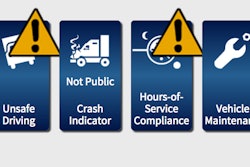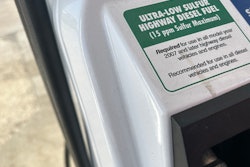
The Federal Motor Carrier Safety Administration announced Jan. 15 a rulemaking proposal designed to update FMCSA’s safety rating methodology by integrating on-road safety data from inspections, along with the results of carrier investigations and crash reports, to determine a motor carrier’s overall safety fitness on a monthly updated basis.
The proposed Safety Fitness Determination (SFD) rule would replace the current three-tier federal rating system of “Satisfactory, Conditional and Unsatisfactory” for federally regulated commercial motor carriers (in place since 1982) with a single determination of Unfit, which would require the carrier to either improve its operations or shut down.
“Using all available information to achieve more timely assessments will allow us to better identify unsafe companies and get them off the road,” said U.S. Transportation Secretary Anthony Foxx.
“Carriers that we identify as unfit to operate will be removed from our roadways until they improve,” said FMCSA Acting Administrator Scott Darling.
Once in place, the agency believes the rule will enable it to properly assess the safety fitness of approximately 75,000 companies a month. By comparison, the agency is only able to investigate 15,000 motor carriers annually under the current system, with less than half of those companies even receiving a safety rating.
Two data sources underlie the methodology the agency proposes to use: Investigation results as well as roadside inspection/violation data as compiled and measured by the CSA Safety Measurement System in five of its seven Behavior Analysis and Safety Improvement Categories (BASICs) (excluding the Crash Indicator and the Controlled Substances/Alcohol category). A carrier’s on-highway performance in relation to a fixed failure threshold established in the rule for those five BASICs — Hours of Service Compliance, Driver Fitness, Unsafe Driving, Vehicle Maintenance and Hazardous Materials — will be considered.










